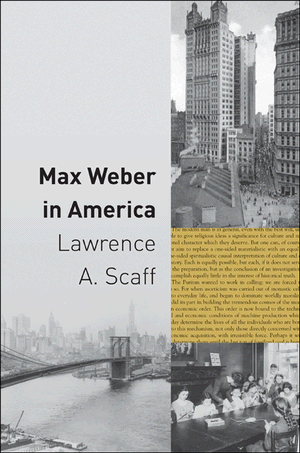Weber cannot be understood without an appreciation of his experiences in this country, and America’s special path to modernity is difficult to grasp without a substantial dip into Weber’s extensive body of writing....Weber’s fascination with all aspects of American culture belies any notion that the new world and the old were incapable of meeting on equal terms.More on Weber's American adventures, and this "wonderful book," is here.
"That fateful first shot" of the Civil War "unleashed a barrage of books about the War Between the States," writes Debby Applegate in the New York Times. "In 1995 one bibliographer estimated that more than 50,000 had been published, exploring every aspect of the conflict on and off the battlefield. Thousands more have appeared since then." More are forthcoming for the sequecentennial, but "few will be as exhilarating as '1861: The Civil War Awakening,'" by Adam Goodheart. The author
combines a journalist’s eye for telling detail with the rigorous research of a good historian. But he gives his far-flung journey narrative tension and suspense by religiously following two fundamental rules of the novelist: first, make the reader care about your characters, then make the reader worry about them.Continue reading here.
Elaine Scarry, Thinking in an Emergency, is taken up in the Times Higher Education (UK) book section. Patrick Tissington finds it "Short but densely populated with fascinating material that has furnished me with a long list of further reading to pursue." The book is a "mind-blowing canter around some difficult topics - conflict, democracy and nuclear war. It is, moreover, a highly timely work in light of recent spontaneous uprisings against oppressive regimes - and, as Scarry points out, we in the West are perhaps not as free as we might think." The rest is here.
Imani Perry reviews Malcolm X: A Life of Reinvention by Manning Marable in the San Francisco Chronicle.
Although the conflict over the content has probably driven sales and attention to the book, the brilliance of this biography has little if anything to do with its apparently shocking revelations. Marable has crafted an extraordinary portrait of a man and his time. Malcolm moves through the social and intellectual history of mid-20th century black America, and his periods of growth and stagnation mirror the tides of black life.


 by Edmund Morris, and
by Edmund Morris, and  by Joseph J. Ellis, and
by Joseph J. Ellis, and  by G.J. Barker-Benfield.
by G.J. Barker-Benfield.